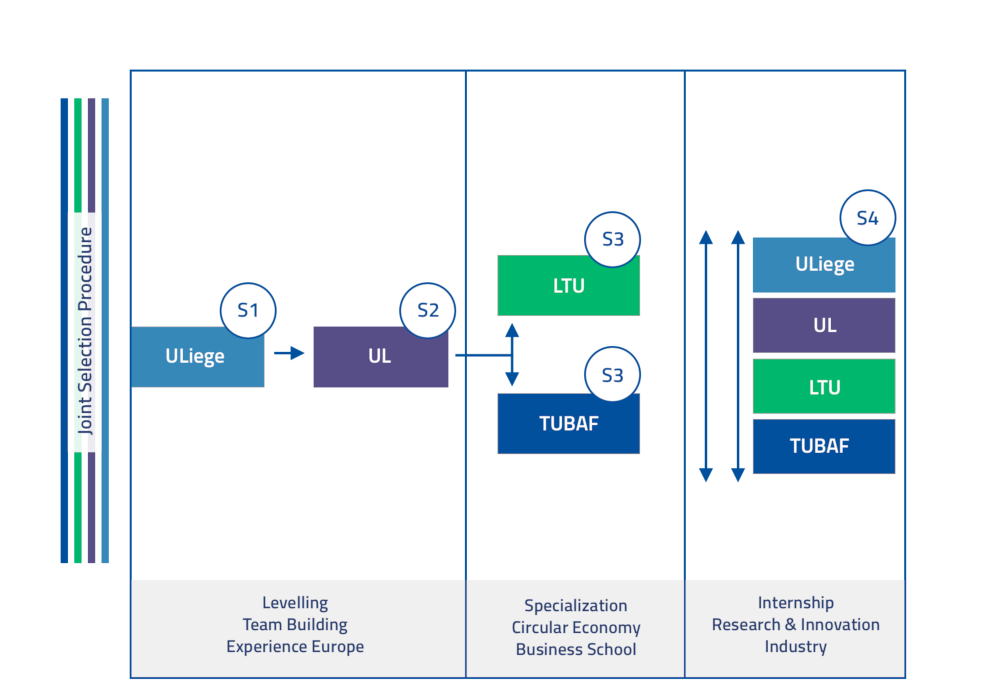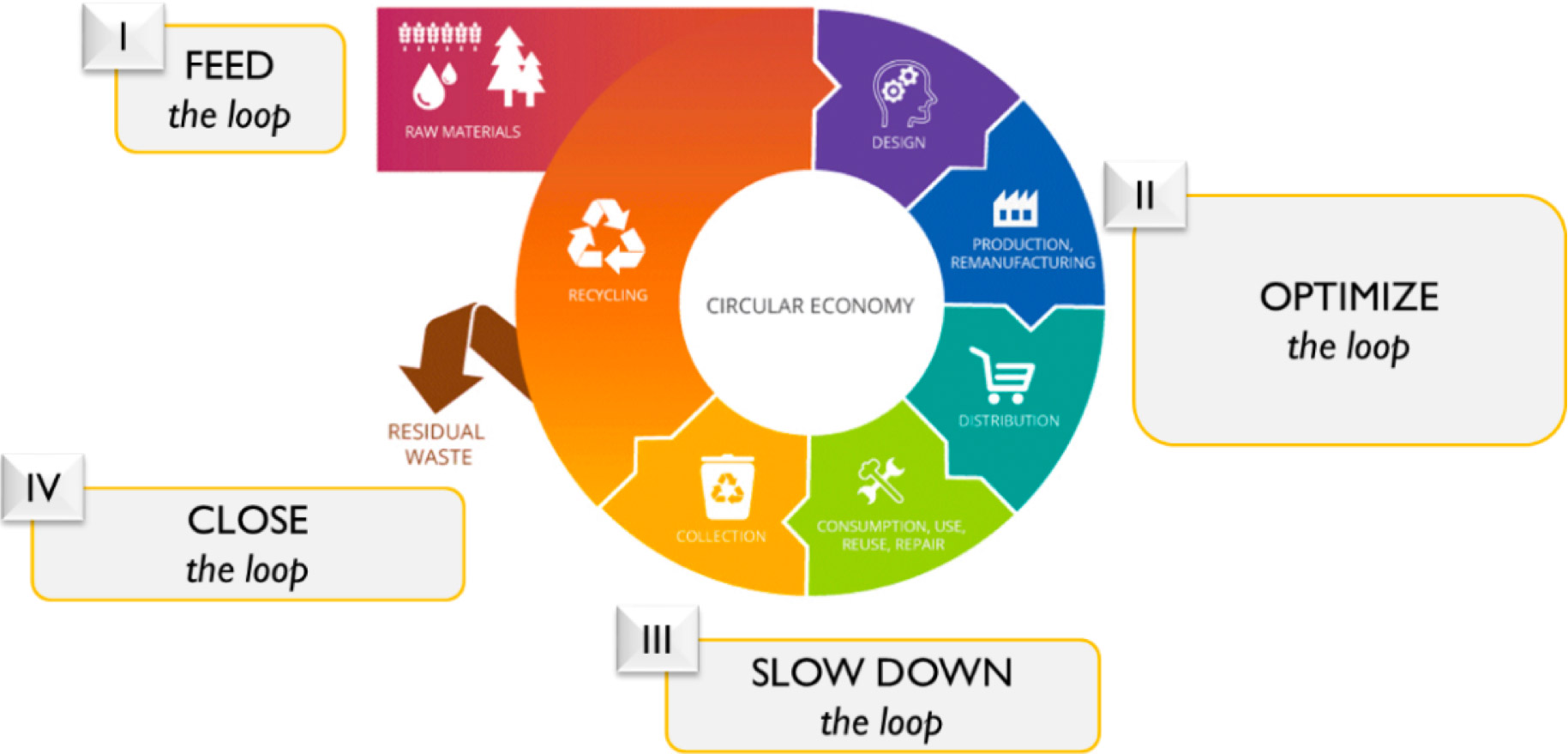Home / Your Impact
Become a sustainability innovator
From primary to secondary resources
The former EMerald Master Programme (2013-2017) was promoted as the “Master in Georesources Engineering” programme. It was targeted towards primary raw materials with the motto “innovative education in geometallurgy”. The ambition of the programme was to provide a strong background in process engineering, together with a good understanding of the complexity of natural resources.
The EMerald Master Programme’s new aim is to address the larger challenges of the circular economy, whilst still incorporating the original philosophy. In addition to this, the new programme will also address both primary and secondary raw materials subjects, including urban mining and landfill mining. The academic partners of the EMerald Master programme are the leaders in the field of recovering resources from end-of-life products and the EMerald programme is unique in its academic offer to jointly address the challenges of mineral processing and recycling. Therefore, the programme has been given the new title of “Master in Resources Engineering”, highlighting the deeper understanding of the circular economy afforded to EMerald programme students, who can choose to specialise in either upstream or downstream processes.

S = Semester
ULiège = University of Liège
UL = University of Lorraine
LTU = Luleå University of Technology
TUBAF = Technische Universität Bergakademie Freiberg
As shown in the above diagram, the first year of the programme aims to balance a core focus between resource characterisation and modelling and processing and management techniques. The thematic courses offered by the two universities of ULiège and UL are complemented by a strong programme to develop transversal skills. Industry experts and invited scholars bring key contributions on corporate social responsibility, economics, life cycle analysis and other essential aspects of modern sustainable engineering operations. All courses offer a blend of theoretical lectures and practical laboratory work, with students often working within groups on a real case study or working individually exploring potential processing routes of complex ores and waste materials.
Addressing the need for education on the Circular Economy
This part of the EMerald Master Programme explores the breadth of the circular economy, including:
- Feeding the loop (exploration and mining)
- Optimising the loop (process engineering and product design)
- Slowing down the loop (consumer behaviour, reuse and repair)
- Closing the loop (collection, dismantling, recycling)
This covers the whole lifecycle of a product, from resource exploration to end-of-life use. Our aim is to follow the T-shape approach set out by Pirard and Greberg, who describe a students learning as “a deep understanding of their own discipline, while keeping a broad and holistic view of the circular economy paradigm.

This philosophy is at the core of the EMerald Master Programme, as our unique signature is to bridge the gap between geological exploration and mineral processing by offering innovative education in geo-metallurgy. There is a strong need in Europe’s urban mining sector for a representative curriculum in the field of eco-metallurgy. Our ambition is to help to close this loop by educating the engineers of the future with an understanding of processing challenges and the need to meet downstream track recyclability targets. Therefore, based on this need-analysis in the raw material sector, the new EMerald programme has been implemented in order to offer a specialisation in primary resources at LTU or in secondary resources at TUBAF.
Further your career today
Apply for the EMerald MSc Programme today and become a pioneer in raw materials sustainability.
APPLY TODAY